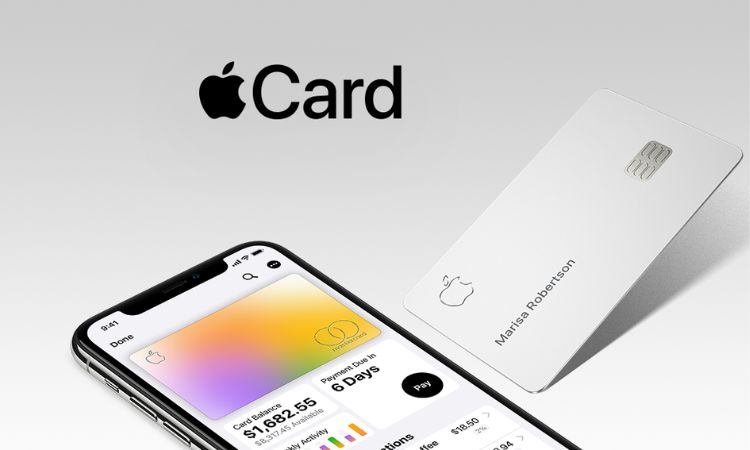One of the primary reasons Apple may consider launching the Apple Card in India ahead of countries like Japan or European nations is its inability to accept card payments in India. The prevalent payment method for App Store purchases in India is the Unified Payments Interface (UPI) while services like iCloud storage and music rely on card payments. However, recent regulations by the RBI have mandated that third-party websites should not store card details and that all payment data must be stored exclusively on Indian servers.

Image-: Apple
Apple Inc., the acclaimed creator of iPhones is currently engaged in discussions with banks and regulators to bring its credit card the “Apple Card” to India. In a recent visit to the country, Apple’s CEO Tim Cook met with HDFC Bank’s CEO and MD Sashidhar Jagdishan signaling the company’s interest in expanding its financial services. This move aligns with the growing trend of mobile payments where tech giants like Apple, Google, Amazon, and Samsung actively seek opportunities in the payments sector.
Apple has reportedly held talks with the Reserve Bank of India (RBI) regarding the card’s implementation. The RBI has requested Apple to adhere to the standard procedure for co-branded credit cards without any special considerations. While official statements from Apple and HDFC Bank are yet to be released, it is believed that Apple aims to launch the Apple Card in collaboration with HDFC Bank in India. However, the discussions are still in the early stages and no final decision has been reached.
Interestingly, Apple has been contemplating significant deviations from the conventional co-branded credit card model in India. However, it remains uncertain whether the company is willing to make the necessary compromises for a successful card launch in the country. The exact nature of the discussions and the potential launch timeline in India is yet to be determined.
In the United States, Apple already offers a premium credit card in partnership with Goldman Sachs and Mastercard. This card made of titanium metal caters to high-end customers. Sources suggest that Apple’s discussions with HDFC Bank, one of India’s largest banks, align with Apple’s preference for partnering with prominent institutions.
India holds strategic importance for Apple, with growing iPhone sales contributing to substantial revenue growth in recent years. The company’s revenue in India reached approximately Rs 50,000 crore ($6 billion) in FY23 representing a significant 50% increase compared to Rs 33,500 crore ($4 billion) in FY22. By capturing a substantial portion of transactions through the Apple Card, Apple could have a considerable impact on its global services revenue which currently stands at around $80 billion.
During Tim Cook’s visit to India in April, Apple inaugurated exclusive retail stores in Delhi and Mumbai highlighting its focus on the Indian market. Additionally, the company has been shifting a significant portion of its iPhone production to India with the country projected to account for approximately 25% of Apple’s total mobile phone production in the next three to four years.
With around 4% market share in India’s smartphone market equivalent to approximately two crore users, Apple aims to significantly increase its presence. If 20-30% of Indian smartphone users transition to iPhones over the next decade as observed in other middle-income countries, India could become Apple’s third-largest market following the United States and China.
One of the primary reasons Apple may consider launching the Apple Card in India ahead of countries like Japan or European nations is its inability to accept card payments in India. The prevalent payment method for App Store purchases in India is the Unified Payments Interface (UPI) while services like iCloud storage and music rely on card payments. However, recent regulations by the RBI have mandated that third-party websites should not store card details and that all payment data must be stored exclusively on Indian servers. These directions along with the requirement for one-time customer permission through OTP for standing instructions have made UPI a more seamless option for Apple customers. Consequently, Apple temporarily halted card payments in India and is now exploring the launch of its own credit card potentially precluding other credit cards from being used on its platform.
Launching the Apple Card in India presents unique challenges for Apple. Unlike in the United States, Apple cannot introduce a plain card with only the company’s logo and the customer’s name on the front. Indian regulations require that the bank takes the lead with the backside of the card displaying the names of both HDFC Bank and Mastercard. Additionally, the card cannot feature a printed card number. Furthermore, the RBI has explicitly stated that the bank’s partner in this case Apple cannot store customer or transaction data. This requirement sets India apart from other countries where Apple operates.
Despite the regulatory constraints, offering the Apple Card in India presents an enticing opportunity for banks. However, due to stringent regulations, these banks cannot offer significant privileges or benefits to Apple’s premium customers. Nevertheless, the Apple Card brings several advantages to customers including integration with Apple Pay and the accumulation of reward money in the Apple wallet which earns an annual interest rate of 4.15%. Furthermore, the card does not charge any annual fees. In the United States, Apple cardholders can purchase Apple products in interest-free installments in addition to receiving cashback rewards ranging from 3-5% on Apple products and services. Apple may also explore collaborations with other premium brands to offer cashback or reward points on purchases from these partners potentially ranging from 2-3%.
In the United States, Apple provides a daily 2% cashback when using the card through Apple Watch or iPhone utilizing tap-and-pay at NFC-enabled payment terminals. Additionally, cardholders enjoy 3% cash back at major merchants.
Overall, Apple’s pursuit of launching the Apple Card in India aligns with its focus on the country’s growing market and the increasing popularity of mobile payments. While regulatory constraints may require compromises, Apple sees significant potential in India as a key market for its products and services.














